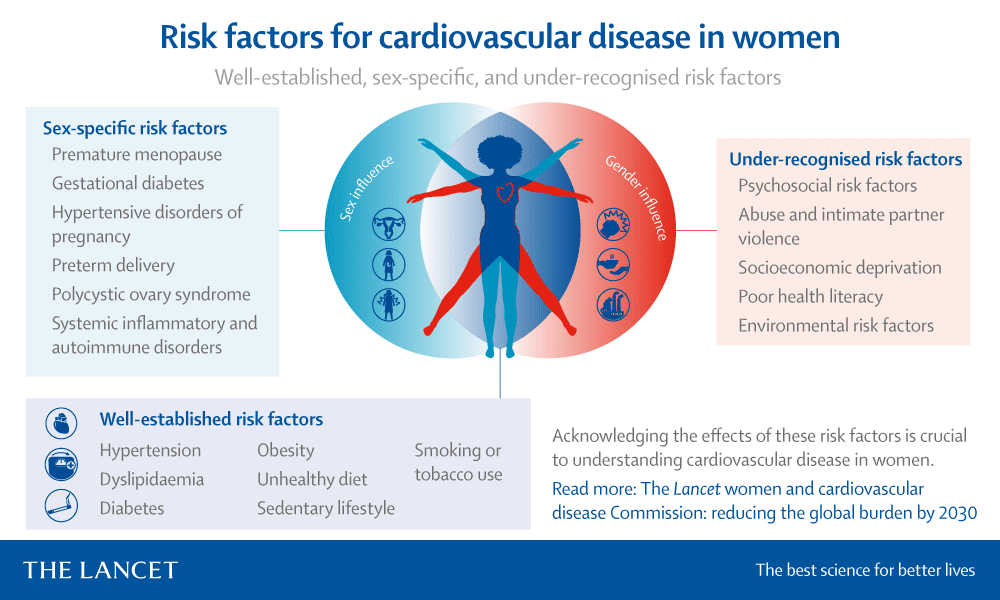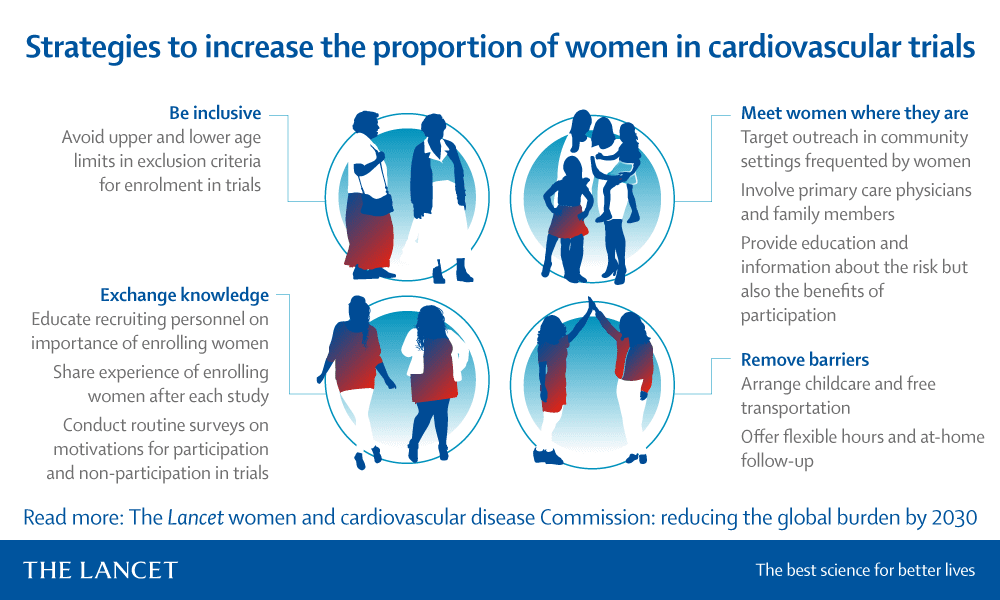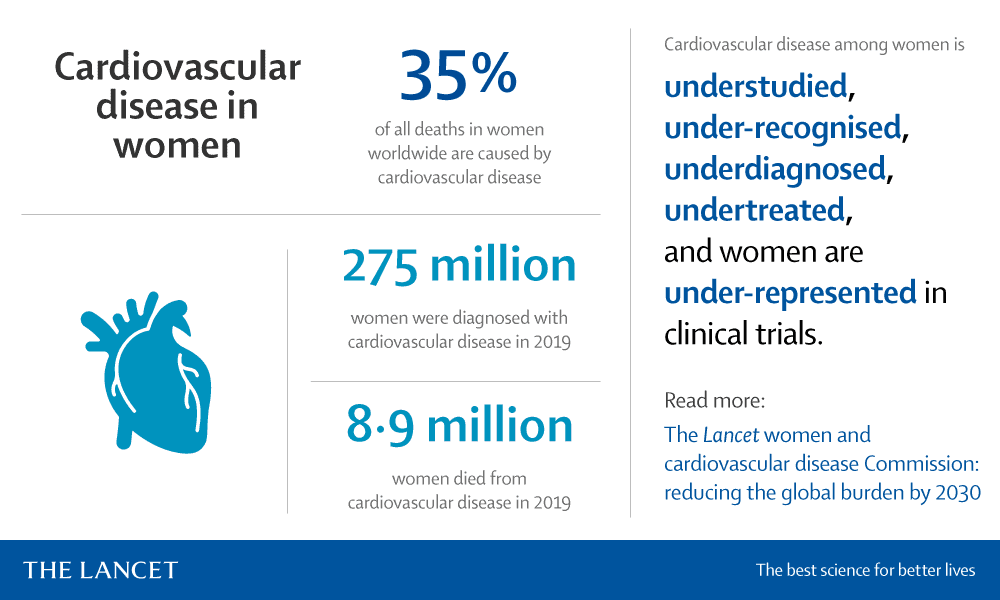By Dr Rebecca Dobson, BCS Women in Cardiology Lead and Consultant Cardiologist at the Liverpool Heart and Chest Hospital
A bold and ambitious statement from an international team of experts and leaders makes welcome reading in the Lancet this week. In the first-ever global report on cardiovascular disease in women, the Commission aims to reduce the global burden of cardiovascular disease in women by 2030.
Cardiovascular disease is the leading cause of death in women, which despite a global decline in prevalence, is on the increase in some areas. In the words of Professor Roxana Mehran, CVD amongst women remains understudied, under-recognised, underdiagnosed and undertreated globally. The statement contains 10 recommendations to address the inequalities in research, diagnosis, treatment and prevention of CVD in women. These recommendations include prioritisation of education of health care professionals, more funding for sex-specific research into the pathophysiology and natural history of CVD in women and the scaling up of healthy heart programmes.
This unique Commission is sure to increase awareness of gender-related inequalities in cardiovascular disease, close knowledge gaps and ultimately benefit patients.
See the full Lancet report here: The Lancet women and cardiovascular disease Commission: reducing the global burden by 2030 – The Lancet
(Figures taken from the Lancet; Birgit et al, 2021)

The figure categorises risk factors for cardiovascular disease in women into three categories: those that are well-established and affect both sexes but which might affect women differently to men (eg, hypertension, dyslipidaemia, and diabetes); those that are sex-specific (eg, premature menopause and pregnancy-related disorders); and those that are under-recognised (eg, intimate partner violence or poverty) and which can be related to gender and interaction with a woman’s social and physical environment. Although research is beginning to recognise how these factors might interact or increase risk, acknowledging the effects of well established, sex-specific, and under-recognised risk factors is crucial to understanding cardiovascular disease in women.
*Systemic inflammatory and autoimmune disorders are not sex-specific risk factors, but women are disproportionally affected by these conditions.


